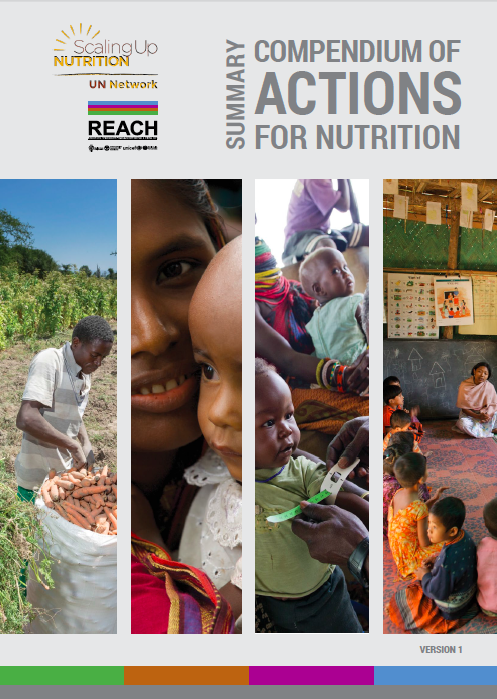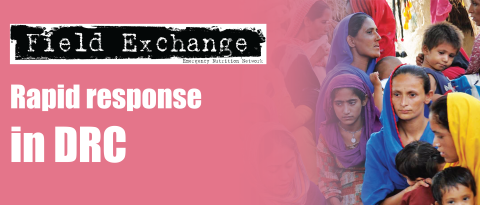Compendium of Actions for Nutrition (CAN)
 Nutrition has received considerable attention in recent years with the advent of the Scaling Up Nutrition (SUN) Movement in 2010, the launch of the United Nations Secretary-General’s Zero Hunger Challenge in 2012, the Second International Conference on Nutrition (ICN2) in 2014 and a United Nations resolution in 2016 proclaiming 2016-2025 the UN Decade of Action on Nutrition. And the UN Food and Agriculture Organization 2030 Agenda for Sustainable Development includes 17 Sustainable Development Goals (SDGs), recognising improvements in nutrition as a key priority underpinning all SDGs. This has led to renewed impetus for countries to develop or update multi-sector national nutrition policies, strategies and plans in an effort to scale up nutrition actions and address all forms of malnutrition.
Nutrition has received considerable attention in recent years with the advent of the Scaling Up Nutrition (SUN) Movement in 2010, the launch of the United Nations Secretary-General’s Zero Hunger Challenge in 2012, the Second International Conference on Nutrition (ICN2) in 2014 and a United Nations resolution in 2016 proclaiming 2016-2025 the UN Decade of Action on Nutrition. And the UN Food and Agriculture Organization 2030 Agenda for Sustainable Development includes 17 Sustainable Development Goals (SDGs), recognising improvements in nutrition as a key priority underpinning all SDGs. This has led to renewed impetus for countries to develop or update multi-sector national nutrition policies, strategies and plans in an effort to scale up nutrition actions and address all forms of malnutrition.
As a result, there has been new demand from countries for a consolidated resource that national governments and other stakeholders can draw upon for multi-sector dialogue around policy, planning, programming, coordination, monitoring, evaluation and implementation of nutrition actions. In response, the UN network for SUN/REACH Secretariat, in consultation with UN partner agencies (FAO, IFAD, UNICEF, WFP and WHO) has developed a new Compendium of Actions for Nutrition (CAN).
The CAN was designed to provide an understanding of the breadth of actions needed to combat malnutrition, facilitate multi-sector dialogue and spur action at country level, particularly on nutrition-related policy and planning. While the compendium does not prescribe a specific set of nutrition actions, it does recognise that prioritisation is critical. Countries must prioritise, based on context, drawing on a robust situation analysis, available evidence and country priorities, in consultation with a range of stakeholders. The CAN is not intended to replace any existing technical guidance; rather, it builds on existing guidance developed by FAO, WFP, WHO and UNICEF and consolidates them into one document to promote a holistic approach to nutrition.
The intended audience is national authorities and supporting partners engaged in multi-sector nutrition governance processes (e.g. SUN government actors, REACH facilitators and SUN networks). Actors can use the CAN to foster participatory, multi-sector dialogue on nutrition-related policy formation. It provides a list of potential nutrition actions for reference by countries in developing context-specific policies and plans. The matrices of actions are presented in a concise and easy-to-use format, accessible to those without a technical nutrition background. The CAN may also be used to facilitate the development of nutrition mapping and information platforms.
Possible actions to combat malnutrition are categorised under Food, Agriculture and Healthy Diets; Maternal and Childcare; Health; Social Protection; and Multi-sector nutrition governance. There are 14 thematic areas, 43 actions, 132 sub-actions and over 200 enabling environment sub-actions. Classification of sub-actions into three evidence categories (synthesised evidence, primary studies and practice-based studies) clarifies the evidence base and identifies research gaps. Where evidence is limited, there are opportunities to advocate for further data to be generated, influencing the nutrition research agenda to strengthen evidence-based nutrition governance.
The CAN is now available in full and summary versions here.


